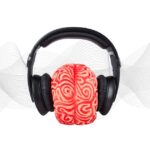While tinnitus masking devices help many, there are also limitations and potential downsides to consider:
- They don’t make tinnitus go away: Masking devices help with the symptoms of tinnitus, but they don’t fix the problem that causes it. The tinnitus will usually go back to normal if you take away the sound (turn off the masker or leave a quiet room). Some people get hooked on their masker because it only helps for a short time.
- Could make it harder to get used to: Wearing a sound mask all the time can feel like instant relief, but it can also get in the way of your brain’s own ability to adapt. A lot of tinnitus treatments aim for habituation, a step-by-step process that trains your nervous system to treat the ringing as unimportant background noise. Therapists use gentle exposure, sound therapy, and coping exercises so your brain slowly stops reacting to the tinnitus. In other words, masks help in the short term, but gradual retraining helps you become less bothered by the sound in the long term. Some experts say that hearing your tinnitus a little bit from time to time can help you get used to it. But there is some disagreement about this. Some people think that you shouldn’t “swamp out” your tinnitus for good because your brain still needs to get used to it. The main point is that long-term masking might make it take longer to get used to something, so it’s something to think about.
- Different levels of effectiveness: Not everyone feels better right away. You might feel like the masker “doesn’t work” if your tinnitus doesn’t seem to change much when you use it. Also, different people react to different sounds. A mask that works for one person might not work for another. Also, maskers usually work better for tonal or high-pitched tinnitus than for tinnitus that is very complicated or changes all the time.
- Price and ease of use: Hearing aids that are very good can be expensive and may not be covered by insurance. Some advanced sound therapy systems can be expensive, even if they are stand-alone devices or apps. You also need to remember to use the device regularly. For some people, wearing headphones or running a sound machine all night can be annoying or uncomfortable.
- Problems with sleep and comfort: A lot of people use maskers to help them sleep, but some people find that any extra noise is too much. If you sleep lightly or wake up easily, even soft white noise could be annoying. Also, some people may find it uncomfortable to sleep with in-ear devices or headphones.
- Possible Effects in the Long Run: There’s ongoing debate among researchers about the potential risks of extended white-noise exposure. A 2018 review in a medical journal said that constant, unstructured noise could cause the brain’s auditory pathways to change in ways that aren’t good for you, which could make things worse in the long run. The authors even said that “sound therapies using unstructured, random (‘white’) noise should be avoided.” But this conclusion is not agreed upon by everyone, and other experts have disagreed with it. Many audiologists still think that maskers are safe, and there is no solid proof that white noise can hurt you. The jury is still out, but it looks like maskers should be used wisely (for example, not blasting at full volume all the time).
- Mixed Research Results: As noted, large reviews have not proven maskers work for everyone. If you try masking and it doesn’t help you, don’t feel like you’re doing it wrong. It just might not work for your type of tinnitus. You may need to try a few different approaches together, like sound therapy, counselling, stress relief, hearing aids, and so on.
In general, it’s important to have realistic goals. Masking devices won’t get rid of tinnitus for good, but they can help a lot of people deal with it better. A combination of things is often the best way to go. Use maskers strategically when the environment is silent or you’re under pressure, pair them with stress-management habits, and protect your hearing by lowering volumes and using ear protection in noisy settings.
Other Ways to Deal with Tinnitus
Masking devices are just one tool in a tinnitus-management toolbox. Many experts recommend combining sound therapy with other approaches:
Counselling and Education: Learning about tinnitus can help you feel less anxious. Tinnitus Retraining Therapy (TRT) combines low-level masking with counselling to help people get used to their tinnitus over time.
- Stress management: Relaxation training, meditation, or gentle exercise can help indirectly because stress can make tinnitus worse.
- Limit Silence: If you are annoyed by the constant ringing in your ear, try turning on gentle background sounds such as soft music, nearby conversation, or a low-volume TV. These sounds help the brain relax by distracting your attention and making the tinnitus feel less intrusive.
- Hearing Protection: Avoid prolonged exposure to high-volume environments and use hearing protection, foam or reusable earplugs at concerts, and appropriate protection on construction sites. Reducing both the intensity and the duration of loud sound lowers the chance of new hearing loss and can prevent existing tinnitus from intensifying. Regular hearing checks are also a good idea if you’re often around loud noise. And try to take regular quiet breaks, and lower device volumes. These simple steps prevent new hearing damage and keep existing tinnitus under control.
- Medical Check-Up: Tinnitus can sometimes be caused by something that can be treated, like earwax buildup or a side effect of a drug. It’s a good idea to have an audiologist or ENT look at your ears.
If you do decide to use masking devices, make sure you do so with help. An audiologist can tell you what sounds to use, how to set up your hearing aid, or how loud to keep the masker. Don’t blast noise; the setting should be loud enough to cover the ringing in your ears but not too loud.
At a Glance: Pros and Cons
- Pros:
Masking devices can be very calming. They give you immediate sound relief from your tinnitus, which can help you focus, relax, or sleep better. They don’t hurt and don’t have any side effects. People who have hearing loss and tinnitus can benefit from a hearing aid that has both features (better hearing and less tinnitus). Many users say they feel a lot better: about 90% of people who use hearing aids say they feel better in some way.
- Cons:
Maskers don’t cure tinnitus, their effect stops when the sound stops. Some people are concerned that masking all the time might make it harder for the brain to get used to tinnitus. You have to pay for and put in the work to use them (buying devices, wearing headphones, etc.). And, of course, they don’t help everyone the same way; some users may not notice much of a difference. Finally, some experts warn about the long-term effects of constant white noise on the brain, but this is not settled science.
Next Steps: How to Find the Right Solution
It’s always a good idea to get your hearing checked out if your tinnitus is new or has gotten worse recently. Sometimes getting better hearing (with a hearing aid) makes tinnitus less of a problem on its own. At SFL Hearing Solutions, one of India’s best hearing clinics, our audiologists do thorough hearing tests and tinnitus evaluations. We can give you a hearing aid that has sounds that mask tinnitus if you have hearing loss. Even if your hearing is normal, we can still suggest sound-therapy devices like sound generators or apps that are right for you.
A lot of clinics, like SFL, let you try out hearing aids and maskers for free so you can see if they help you without having to worry about anything. You’ll find out which sounds help your tinnitus the most and get personalised advice on how to use them. For instance, SFL says that 90% of their clients felt some relief from tinnitus after trying hearing aids.
Even if you start with a simple sound machine or app on your phone, keep track of how bad your tinnitus is (how loud it sounds and how much it bothers you). Check to see if the masking strategy is helping you deal with things over time. That’s great if you find a big benefit! Don’t give up hope if you don’t get better. Tinnitus is very different for everyone and often needs more than one type of treatment.
Take Action
Tinnitus can be annoying, but there is help that works. If tinnitus is making your life hard, you might want to ask for help. Make an appointment for a hearing consultation with our experts at SFL Hearing Solutions in India. We offer free tests and will create a plan just for you. You can look into hearing aids that help with tinnitus, try out sound machines that have been shown to work, or find out about other treatments. Don’t put off getting rid of the ringing in your ears.
Call SFL today to find out more about how to deal with tinnitus and get one step closer to feeling better!





